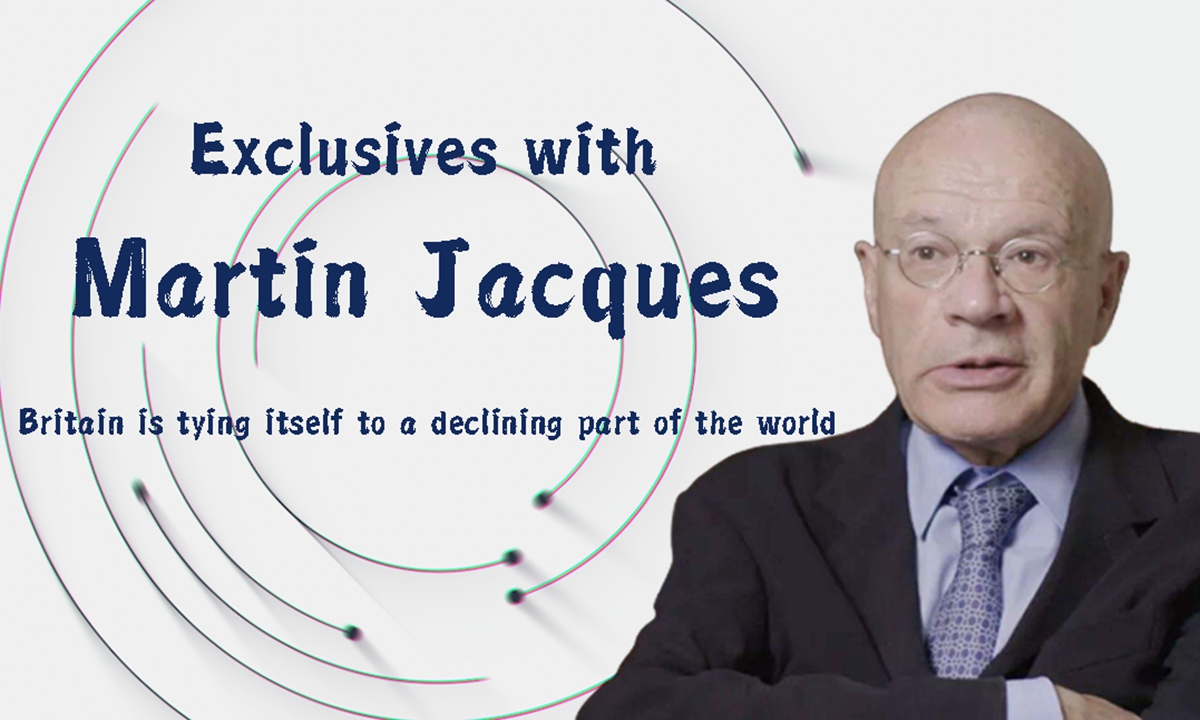What will happen to Europe? Will it continue with a broadly pro-American orientation, or will it pursue an increasingly independent position?
Either way, the consequences will be far-reaching. At the heart of the West lie the US and Europe. If Europe seeks a more autonomous role, then the West will be seriously weakened.
The end of the Cold War marked a major moment in US-Europe relations. Europe was no longer dependent on the US for its defense and ever since, slowly but remorselessly, a growing distance has opened up between them. This was accelerated by two key events ̶ the US invasion of Iraq, opposed by most Europeans, and the Donald Trump phenomenon, which most Europeans found beyond the pale.
President Joe Biden wants to mend the fences and return to something closer to the pre-Trump relationship. He may have some success because, unlike Trump, Biden will seek to befriend rather than castigate Europe. But there will be no simple return to the pre-Trump era: too much has happened, too much has changed.
A recent opinion poll by the European Council on Foreign Relations across 11 European countries reveals what can only be described as a sea-change in European attitudes in the post-Trump era. Six in 10 Europeans believe that the US political system is broken and that China will become a stronger power than the US in the next10 years. A majority now want their country to remain neutral in any conflict between the US and China.
A majority of Germans believe that, after voting for Trump in 2016, Americans can no longer be trusted; across Europe likewise more people agreed than disagreed with this statement. The survey grouped the respondents into four categories. The smallest, 9 percent of the total, believed that the EU was broken and the US would bounce back. A second group, around 20 percent of the total, believed that both the US and the EU would continue to thrive. A third group, 29 percent of the total, thought that both the US and the EU were broken and declining. A fourth group, 35 percent of the total, believed that the EU was healthy, but the US was broken. The latter two groups, almost two-thirds of the total, expected that the US would soon be displaced by China.
There has clearly been a profound shift in European attitudes consequent upon the decline of the West since the 2008 financial crisis, the Trump presidency and the rise of China. These, we must remind ourselves, are very recent developments which have happened with remarkable speed. Far from reinforcing the Atlantic alliance and the relationship with the US, their main impact on Europeans has been to weaken those bonds, elicit a growing acknowledgement that the world has changed profoundly and foster a belief that Europe needs to be more independent. Of course, these trends are still young and fluid. Many conflicting forces are at work with attitudes ebbing and flowing both within and between countries. Criticism of China has grown apace in the recent period in Europe, as it has in the US. But there is one fundamental difference. While the US is bent on defending its global primacy, Europe long ago abandoned any such pretensions, thereby greatly reducing the sources of friction and animosity between it and China in comparison with the US.
The survey reveals that by far the dominant trend is toward a more independent-minded Europe, a growing skepticism about the US and a sign of recognition that China will soon become the dominant power in the world. The European leader who most symbolizes this outlook, and has pioneered this way of thinking, is German Chancellor Angela Merkel. The recently agreed EU-China Comprehensive Agreement on Investment, very much in Merkel's image, is a powerful demonstration of the EU's willingness to pursue its own independent relationship with China rather than following the Americans.
The trend toward a growing distance between Europe and the US will be slow, tortuous, conflict-riddled, and painful. Europe has looked westward across the Atlantic ever since Christopher Columbus. It was European settlers who colonized Northeast America and subsequently established the US. The latter was a European creation which over time was to outperform its ancestral continent. If Europe colonized much of the world, the post-1945 world order was a Western creation, with the US the dominant partner and Europe very much a junior partner. In sum, an enormous historical, intellectual, political and cultural hinterland binds the US and Europe together. But we are now in new territory. American decline means that it has increasingly less to offer Europe.
The gravitational pull of China, and Asia more generally, is drawing Europe eastward. Nothing illustrates this phenomenon better than the China-proposed Belt and Road Initiative. Slowly but surely, bit by bit, Europe is becoming more and more involved ̶ first the countries of Central and Eastern Europe, then Portugal, Greece and Italy, and others over time will in all likelihood follow. What drew Europe westward is now drawing it eastward: the centre of gravity of the global economy, once in the west, is now in the east.
The author was until recently a Senior Fellow at the Department of Politics and International Studies at Cambridge University. He is a Visiting Professor at the Institute of Modern International Relations at Tsinghua University and a Senior Fellow at the China Institute, Fudan University. Follow him on twitter @martjacques. opinion@globaltimes.com.cn
Europe goes its own way on China

EVER since Joe Biden won the US presidency, the rhetoric from Europe’s leaders has been filled with anticipation of a new transatlantic dawn. With Donald Trump out of the White House, Europe signalled that it would again link arms with America, bound by common ideals and a firm resolve to “save the world from its bad angels”.
“The United States is
back. And Europe stands ready,” European Commission President Ursula von
der Leyen had declared on Biden’s inauguration day.
But given the opportunity in recent weeks to show the Biden administration it was serious about geostrategic collaboration, Europe opted instead to “show Washington the finger”, said Politico.
According to the political
journal, a consensus has emerged among transatlantic strategic thinkers
in recent years that the West faces two major threats to its security:
old nemesis Russia and China, the global power the US sees as the much
greater challenge over the long term.
As White House press secretary
Jen Psaki said: “Beijing is now challenging our security, prosperity
and values in significant ways that require a new US approach.”
But Europe appears to have its own ideas, as seen in how the regional bloc has continued to pursue its own course on China in the face of American reservations.
In late December, for example, the European Union
agreed to a landmark investment pact with China, ignoring objections
from across the Atlantic and requests from the Biden camp to hold off
until the new administration was in office.
Then at the the Davos
World Economic Forum last week, German Chancellor Angela Merkel
rejected calls for Europe to pick sides between the US and China, in a
nod to the plea made by Chinese President Xi Jinping a day earlier.
While
Biden is looking to group together democracies to contain China, Merkel
was pointedly wary about the formation of factions.
“I would very
much wish to avoid the building of blocs,” said Merkel. “I don’t think
it would do justice to many societies if we were to say this is the
United States and over there is China and we are grouping around either
the one or the other. This is not my understanding of how things ought
to be.”
Referring to Xi’s speech at the same forum, Merkel said: “The Chinese president spoke yesterday, and he and I agree on that. We see a need for multilateralism.”
Merkel is far from alone in
Europe in not wanting to join a more robust US approach toward Beijing.
Paris and Rome broadly share Merkel’s position.
On Thursday,
French President Emmanuel Macron echoed Merkel’s statement that the EU
shouldn’t gang up on China with the US, even if it stands closer to
Washington by virtue of shared values.
“A situation to join all
together against China, this is a scenario of the highest possible
conflictuality. This one, for me, is counterproductive,” Macron said
during a discussion broadcast by Washington-based think tank the
Atlantic Council.
This kind of common front against China risks
pushing Beijing to lower its cooperation on issues like combating
climate change, added the French president.
Macron was the first European leader to make it a point to engage with China as a European bloc by including Merkel and then-EU Commission President Jean-Claude Juncker during a bilateral visit by Chinese President Xi Jinping to France in March 2019.
Macron and European partners didn’t
share the Trump administration’s outwardly aggressive stance on China,
instead theorising that it was at once a “partner, competitor and
systemic rival.”
And now it looks like they do not want to go back to
the “old normal” either, where US led in the us-versus-them global
politics.
Whether Europe’s decision to effectively de-couple from the
US foreign policy agenda before Biden’s administration has really even
begun is born out of a desire to achieve the dream of “strategic
autonomy,” concern that Donald Trump could return in four years, or some
combination thereof may not matter in the end.
As the strategic
rivalry between the US and China comes into focus, Europe is adamant to
stay on the sidelines and remain neutral. – Agencies
Related:
How this US-China trade war will remake the world

Martin Jacques: China's rise to power











